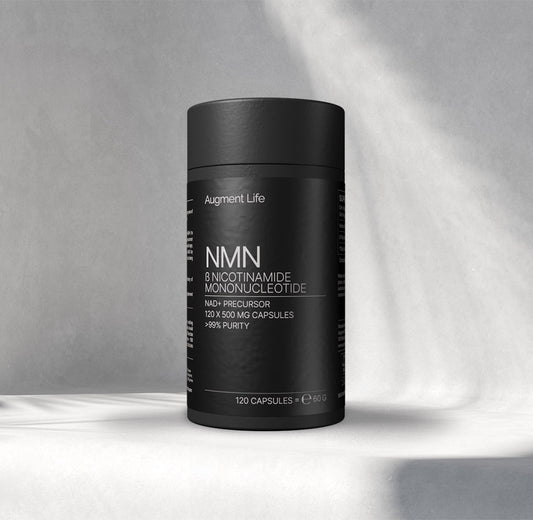Berberine, a bioactive alkaloid molecule found in many traditional medicinal plants, is getting recognized for its known for its benefits in weight loss, PCOS, and controlling insulin levels. Berberine also has potential benefits in cancer prevention and treatment, which we will explore in this article.
Early research shows berberine's promising ability to inhibit cancer cell proliferation, induce apoptosis, and enhance the efficacy of conventional therapies. Typical dosages of berberine used in studies range from 1000 to 1500 mg per day, but ongoing research is needed to prove the optimal dosing and long-term safety.
Berberine - Benefits
Berberine is an alkaloid compound isolated from various plants, like those from the families of:
- Annonaceae,
- Berberidaceae,
- Menispermaceae,
- Papaveraceae,
- Ranunculaceae,
- Rutaceae.
Berberine is a well-known phytochemical compound used in traditional Chinese medicine. Early writings suggest that different parts of the berberine plant were used even in 650 BC. The highest amount of berberine can be found in the plants of the Berberis genus, especially in the bark, stem, and roots. Modern methods of berberine extraction ensure high purity and efficiency of the berberine supplement (1).
Berberine extract is prepared as a supplement into two main formulations: berberine HCl (or berberine hydrochloride) and berberine sulfate/chloride/bromide.
These berberine supplements offer a great deal of health benefits, like:
- weight loss,
- lowering blood sugar levels,
- lowering total cholesterol levels and high blood pressure,
- could help with the polycystic ovarian syndrome (PCOS) and IVF treatments' efficacy.
Please read more on berberine's health benefits and the appropriate dosage for these uses in our previous article: "Berberine - Health Benefits, Dosage and Side Effects".
In the rest of this article, we will focus solely on berberine's potential effects in preventing and treating cancer.
How Can Berberine Affect Cancer Cell Growth?
To understand how berberine might influence cancer growth or development, we first need to comprehend how it works on a molecular level. One of the most known and impactful ways of how berberine works is its effect on the AMP-activated protein kinase (AMPK) pathway. By activating this pathway, berberine can promote stopping of cell division and promote the programmed cell death, called apoptosis.
Another pathway berberine affects is the mTOR pathway, which is often too active in cancer cells. By inhibiting mTOR, berberine can reduce the survival of cancer cells and enhance their sensitivity to other treatments.
If you want to learn more about these pathways and how they work, read our article: "Are AMPK and mTOR pathways the molecular key to longevity?".
Other than cell growth or apoptosis, berberine also has strong anti-inflammatory properties. Chronic inflammation is a well-known risk factor for cancer, and by reducing inflammation, berberine may help prevent cancer development (2).
Berberine and Cancer - Preliminary Research
Early research shows that berberine can inhibit the growth of various cancer cell cultures, including:
- breast,
- colon,
- gastric,
- lung,
- prostate,
- liver cancers.
For example, berberine inhibited the diving and growing of triple negative breast cancer cells by inducing apoptosis and cell cycle arrest (3). In colon cancer models, berberine inhibited tumor growth and metastasis by (4).
In liver cancer cells, berberine has been shown to induce autophagy which can remove dangerous cancerous cells (5). Furthermore, in prostate cancer, berberine has been observed to inhibit the androgen receptor signaling pathway, which plays a crucial role in the growth and survival of prostate cancer cells (6).
Please note that these studies have been done in laboratory dishes containing cultures of isolated cells, or in animal models. To actually test such properties of berberine and translate the results to human studies is very difficult. But, there are some clinical studies regarding berberine and human cancers, so let's see what the results show!
Berberine and Cancer - Human Clinical Studies
There are currently no clinical studies on berberine and cancer, but we can say that the results of preliminary studies look promising.
These findings highlight a great potential of berberine, but we have to remember it's only very early research. Larger and more complex studies need to be conducted to:
- find out what the proper dosage of berberine is,
- is it safe for every patient,
- to confirm berberine actually stops or prevents cancer from growing.
Berberine and Chemotherapy
Because berberine is tied to cell growth and cell death in so many ways, an important question arises. Does berberine interfere with chemo?
The answer is more complicated than a simple yes or no. Berberine has the potential to both enhance and interfere with chemotherapy, which is highly dependent on the context and the specific chemotherapy drug in question. This is what we know so far (7):
- Cisplatin and Doxorubicin: Berberine has been observed to increase the sensitivity of cancer cells to these chemotherapy drugs. This could possibly mean you might need less of them during your treatments, if this proves right in human clinical studies.
- Berberine can inhibit liver enzymes such as CYP3A4, which metabolize many drugs, including some chemotherapy agents. This alter levels of the chemotherapy drug in the body, potentially increasing its toxicity and lowering its effectiveness.
Do not, under any circumstances, start taking berberine on your own, if you're currently undergoing chemotherapy. The timing, dosage, and specific chemotherapy drugs involved must be carefully considered to avoid potential negative interactions.
Berberine and Immunotherapy
Early research suggests that berberine could potentially work together with certain immunotherapeutic agents. This comes from berberine's property to possibly inhibit cancer cell growth and induce apoptosis.
However, berberine's effects on the immune system are not fully understood, and berberine could interfere with certain immunotherapies. Like with chemotherapy, berberine can affect drug metabolism by inhibiting liver enzymes.
Conclusion
Evidence shows us that berberine could potentially be a natural weapon for the prevention and treatment of cancer. Its can target multiple molecular pathways involved in cancer development, and has anti-inflammatory properties.
However, we have to be a bit careful here. While the preclinical and early clinical data on berberine are promising, more research is needed to fully understand berberine’s role in cancer metabolism. If you're going to use it, talk to your healthcare provider first!
Literature sources:
- Juan Manuel Germán-Acacio, David Eduardo Meza-Sánchez, David Morales-Morales, Chapter 3 - Therapeutically relevant natural products as AMPK activators in the treatment of diabetes, Editor(s): Atta-ur-Rahman,
Studies in Natural Products Chemistry, Elsevier, Volume 66, 2020, Pages 57-90, ISSN 1572-5995, ISBN 9780128179079, https://doi.org/10.1016/B978-0-12-817907-9.00003-9. - Almatroodi SA, Alsahli MA, Rahmani AH. Berberine: An Important Emphasis on Its Anticancer Effects through Modulation of Various Cell Signaling Pathways. Molecules. 2022 Sep 10;27(18):5889. doi: 10.3390/molecules27185889.
- El Khalki L, Maire V, Dubois T, Zyad A. Berberine Impairs the Survival of Triple Negative Breast Cancer Cells: Cellular and Molecular Analyses. Molecules. 2020 Jan 24;25(3):506. doi: 10.3390/molecules25030506.
- Tarawneh N, Hamadneh L, Abu-Irmaileh B, Shraideh Z, Bustanji Y, Abdalla S. Berberine Inhibited Growth and Migration of Human Colon Cancer Cell Lines by Increasing Phosphatase and Tensin and Inhibiting Aquaporins 1, 3 and 5 Expressions. Molecules. 2023 Apr 29;28(9):3823. doi: 10.3390/molecules28093823.
- Wang N, Feng Y, Zhu M, Tsang CM, Man K, Tong Y, Tsao SW. Berberine induces autophagic cell death and mitochondrial apoptosis in liver cancer cells: the cellular mechanism. J Cell Biochem. 2010 Dec 15;111(6):1426-36. doi: 10.1002/jcb.22869.
- Liu CH, Tang WC, Sia P, Huang CC, Yang PM, Wu MH, Lai IL, Lee KH. Berberine inhibits the metastatic ability of prostate cancer cells by suppressing epithelial-to-mesenchymal transition (EMT)-associated genes with predictive and prognostic relevance. Int J Med Sci. 2015 Jan 1;12(1):63-71. doi: 10.7150/ijms.9982.
- Jiang X, Jiang Z, Jiang M, Sun Y. Berberine as a Potential Agent for the Treatment of Colorectal Cancer. Front Med (Lausanne). 2022 Apr 28;9:886996. doi: 10.3389/fmed.2022.886996.








